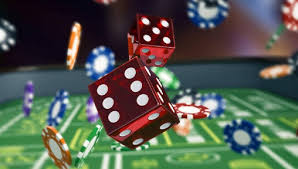The influence of the brain’s reward system
1.Abnormal activation of reward circuits: Long-term excessive participation in gambling games can lead to abnormal activation of the brain's reward circuit, forming a dependence on game rewards. This abnormal activation makes it difficult for players to control themselves and gradually lose interest in normal life.
2.Increased reward response: Addicts have an over-reinforced response to rewards in gambling games. This means that every time they win a game or receive a reward, their brains release a large amount of dopamine, making them feel extremely happy and satisfied.
3.Weakened response to real rewards: Because the brain overreacts to game rewards, addicts become less responsive to rewards in real life. They become numb to the sense of achievement and satisfaction in daily life and find it difficult to derive happiness from them.
4.Neural adaptationsAddictive behaviors are accompanied by neuroadaptive changes in the brain, including reorganization of neural circuits and changes in the sensitivity of the reward system. In the long run, these changes make addicts increasingly dependent on the pleasure brought by gambling games.
5.Decreased ability to assess reward: The integration ability and diversity of reward evaluation-related network functions of addicts are reduced. This means that they have difficulty rationally evaluating the rewards of various behaviors, leading to decision-making errors.
Loss Aversion and Decision-Making Behavior
1.Reduced loss aversion: Addicts show reduced loss aversion in value decision-making tasks, meaning they are less afraid of losing money or items and more willing to take risks.
2.Risk-taking tendency: Addicts are less sensitive to loss than normal people and tend to take risks or choose options with greater potential losses. They are more likely to engage in high-risk gambling behaviors in the hope of getting high returns.
3.Decision Bias: Excessive or insufficient loss aversion can lead to decision-making biases. Addicts may exhibit extreme risk-taking behavior in some situations and overly conservative behavior in others.
4.Risk Selection: When faced with risk or uncertainty, addicts tend to choose riskier options. This choice is not only prominent in gambling games, but may also exist in other aspects of life.
5.Poor decision-making skills: Addicts have poor decision-making skills and impaired ability to change behavior. This lack of skills makes it difficult for them to effectively adjust their behavior and avoid further losses.
Characteristics of behavioral addictions
1.Instant gratification: Addicts always ignore the long-term negative effects in order to obtain immediate satisfaction. They focus more on immediate rewards without considering the long-term risks.
2.Poor decision-making skills: Addicts have poor decision-making skills and impaired ability to change behavior. They have difficulty making decisions that are beneficial to their long-term interests and are easily trapped in a negative cycle.
3.Insensitive to punishment: Addicts are insensitive to punishment and often ignore the long-term negative consequences. This means that even if they experience repeated failures or losses, they will not stop their addictive behavior.
4.Behavioral habits: The availability of games, reward systems, and social interactions can increase the appeal of games and lead to addictive behavioral habits. These factors work together to make it difficult for addicts to break away from their dependence on gambling games.
5.Neural adaptations: Addictive behavior is accompanied by changes in the brain's neural adaptability and reward system. In the long run, this change makes the addict's brain more adapted to and dependent on the stimulation of gambling games.
Design Mechanism
Online gambling enhances users' sense of participation and achievement through a carefully designed reward and punishment mechanism, thereby inducing addictive behavior. Each online gambling game will set up corresponding rewards and punishments based on the player's game time, ability and achievements, and rank the results. Strong players will be admired by other players, which satisfies the human psychological needs of being respected and self-realized.
In addition, online gambling games also design uncertain reward mechanisms. Accurate and predictable rewards will quickly make players tired, but if uncertain rewards are set, players will be more likely to become addicted. This mechanism is the same as the psychological principle of lottery and red envelope grabbing, which can continuously stimulate players' interest and anticipation.
Online gambling game developers use algorithms and tracking technology to accurately predict players' behavior and send them "Lucky Ambassador" rewards in a timely manner when players are about to reach the "pain point" of losing too much and leaving the machine. This reward mechanism helps players maintain a potential feeling of near victory and keeps them engaged in the game.
Online gambling games also further enhance users' sense of participation and achievement through design elements such as virtual titles, levels and honors. The virtual titles and levels obtained by players in the game are not only a recognition of their gaming ability, but also bring respect and envy from other players. This sense of identity and achievement is an important motivation for players to continue to invest in the game.
The design of online gambling games also includes multi-sensory stimulation, such as vision, hearing, touch, etc. These sensory stimulations further enhance the players' sense of immersion and participation through carefully designed interfaces, sound effects and vibration feedback, making it easier for them to indulge in the game.
Through these design mechanisms, online gambling games form a feedback loop that is difficult to break. Instant feedback and reward mechanisms make users constantly pursue the next victory, forming a closed-loop addiction mechanism and increasing the risk of addiction for users.
User behavior impact
Online gambling design influences users’ behavior patterns through multi-sensory stimulation, increasing their participation and dependence. Visual stimulation is one of the important factors. Designers attract users’ attention through bright colors, dynamic effects and eye-catching graphics. This kind of visual design can not only stimulate users’ interest, but also leave a deep impression in their minds, thus increasing their participation.
Auditory stimulation is also a common method used in online gambling design. Through background music, sound effects and voice prompts, designers can create a tense and exciting atmosphere to further attract users' attention. For example, when a user wins a round, the system will play celebratory music and sound effects. This immediate auditory feedback can enhance the user's sense of achievement and satisfaction, prompting them to continue to participate.
Tactile stimulation also plays an important role in online gambling. Through the interactive design of vibration feedback and touch screen, users can get a more realistic experience. For example, when users place bets on their mobile phones, the vibration feedback of the touch screen can simulate the real feeling of keystrokes, increasing the user's immersion and participation. This multi-sensory comprehensive stimulation can effectively influence the user's behavior pattern, making them more likely to indulge in gambling activities.
In addition, online gambling design also enhances user dependence through instant feedback and reward mechanisms. When users engage in gambling activities, the system will give them instant feedback and rewards based on their performance, such as points, virtual currency, and honorary titles. This instant positive feedback can stimulate the user's dopamine secretion, bring a sense of pleasure and satisfaction, and thus increase their participation and dependence.
By tracking user data, online gambling platforms can accurately understand user behavior patterns and preferences, and conduct personalized design and marketing. For example, the platform can recommend games and activities suitable for users based on their betting records and game preferences, thereby increasing user participation and dependence. This personalized design can not only improve user satisfaction, but also increase the platform's revenue.
Feedback loop
Instant feedback and reward mechanisms are crucial elements in online gambling design. They keep users pursuing the next victory by constantly providing immediate positive feedback. This mechanism stimulates the reward center of the brain, releases neurotransmitters such as dopamine, and increases the player's euphoria, thus forming a feedback loop that is difficult to break and increases the risk of addiction.
The key to the feedback loop is the setting of "variable rewards". By introducing variability, online gambling increases the user's state of concentration, causing the brain areas associated with judgment and rationality to fall asleep while activating the areas associated with desire. This mechanism is similar to pulling the lever of a slot machine. People never know what they will get next time, so they keep pursuing the next stimulation.
Online gambling design uses instant feedback and reward mechanisms to allow users to receive rewards immediately after each operation, reinforcing positive behavior. This mechanism not only increases user participation, but also causes users to form compulsive and addictive behaviors. In the process of constantly pursuing the next victory, users gradually fall into a feedback loop that is difficult to break.
Gambling game developers use algorithms to accurately predict players’ “pain points” and when players are about to lose so much that they become unhappy and leave,
When the machine reaches the critical point, they are promptly given the "Lucky Ambassador" reward. This immediate positive feedback allows players to maintain a potential feeling of near victory, so that they continue to play, forming a closed feedback loop.
Instant feedback and reward mechanisms are not only widely used in the gambling industry, but also in Internet applications. Through the combination of powerful emotional triggers and usage behaviors, users will instinctively refresh Weibo or open short video applications when they are bored. This deep-rooted habit is formed through feedback loops.
Social isolation
Online gambling is often an isolated activity that lacks social interaction, and this sense of isolation further exacerbates users' addictive behavior. Unlike traditional gambling, machine gambling is not only fast and difficult to interrupt, but also isolated from social interaction: people only need to face the screen. This isolated environment makes it easier for users to immerse themselves in gambling activities and escape from real-life problems.
The addictive mechanism provided by machine gambling is not the ecstasy of social feedback, but a stable, absent-minded state. Users can escape from all internal and external problems, including anxiety, depression and boredom. Many service industry workers who need to sacrifice a lot of social energy at work use machine gambling to balance this imbalance for themselves.
Research shows that machine gambling accelerates the dissociation process. The experience of addicts is very consistent, they will experience numbness and avoidance, no longer mentioning competition or excitement, but just wanting to "climb into" the machine and disappear into the screen. This isolated gambling experience makes users more likely to fall into the vicious cycle of addiction.
The relationship between users and Internet applications, like the relationship between gamblers and the gambling industry, is often a serious "asymmetric collusion." Users seek a "maze" to forget their troubles, while the gambling industry and the Internet seek to maximize the benefits of money and usage time. Speed is only one of the elements required for addiction, and the real key to addiction lies in the existence of a "maze."
For machine gambling addicts, "winning money" is no longer so important. For them, "the ecstasy" has become the ultimate goal of their gambling. This is a mental state in which the attention is locked on the screen in front of them, as if being sucked in by a magnet, and the rest of the world seems to disappear. This state further exacerbates the user's sense of social isolation.
Final Words
The addiction mechanism in gambling games affects users' decisions and behaviors in many ways. Abnormal activation of the brain's reward system and neuroadaptive changes make addicts overly sensitive to game rewards and weaken their response to real rewards. Reduced loss aversion and risk-taking tendency make them more inclined to take risks and make high-risk choices when making decisions. Online gambling further enhances users' sense of participation and accomplishment through carefully designed reward and punishment mechanisms, multi-sensory stimulation and instant feedback, inducing and maintaining addictive behaviors. At the same time, the effects of social isolation and feedback loops make addicts more immersed in the virtual world and unable to extricate themselves.










